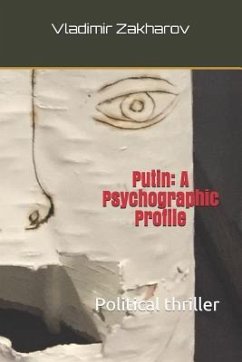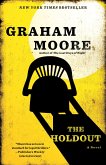I began to think about president Vladimir Putin as an object of psychological description, when I saw the huge role that this little-known person of the 90s began to play in the fate of the country. Without the name "Putin," nothing serious can be done in Russia now. State plans, decisions, meaningful events are impossible without his presence and stamp of approval. Looking at the TV screen, you might get the impression that he works alone in Russia. Those around him act merely as an extension of his power. Putin-a curious hybrid between a person acting on his own rules and agreements and the one who must abide by the law, between the leader of a street gang of boys and supreme government official. He has features of the sophisticated official, who develop and sign ambivalent international agreements and treaties (for example, the Minsk Agreement) and a highwayman who robs the rich Russian people in order to restore social justice (as he understands this justice) and make himself more powerful figure. Despite the constant appeal to the law, he executes the law very selectively. When Putin is not satisfied with some agreement, law or even Russian Constitution, he simply ignores it (e.g., the Budapest Treaty on the Ukraine, signed in 1994, by Russia, USA, Great Britain and Ukraine itself) or changes it. For example, he changed the Constitution according to his needs-he triggered an increase in the presidential term from four to six years. And do not say that this change of the Constitution was initiated by President Medvedev, and then voted by the State Duma and the Federation Council. This is a blatant lie. All special operation from beginning to end was secretly planned and carried out by one person, and the person's name is Vladimir Putin. For the Russian citizen, it is very difficult to get through the images of Putin shown by TV and the state media. The Russian press creates its own image, the Western press creates their own image, mainly the opposite of the former. The first image has him in a positive light, the second has him cast in a negative light. At the same time, the personal psychological problems and complexes of politicians, journalists and analysts, as well as problems of the Russian economy and politics, all bear on the image of this person. This book is about what a boy from a Leningrad yard made of himself and what the limits of his possibilities are. To live up to his own image of a strong president, he deliberately selects into his circle weak people who cannot compete with him. He gets rid of strong colleagues. It was in his youth when Putin gathered friends in the yard who were weaker than he was, more like pawns in his strong-willed plan. He liked to experiment with himself and with the people he commanded. Of course, sometimes his command was unsuccessful. Little by little he improved his management and leadership skills. But he could not avoid loss of human lives - civilian and military. Like any politician, Putin must step over the corpses of soldiers who sacrifice their lives as their duty in the name and for the good of Russia. Sometimes his actions have threatened civilian lives. This raises the question of the price of a human life. There are two Putin personalities who live and govern Russians - one popular, written in the pages of his loyal subjects and followers, and the other - the real one, which can be characterized by his actions only. For most Russian people the second, real Putin is not needed. A beautiful picture of their president is enough for them. Therefore, pro-Putin authors avoid the slippery moments when his behavior and his real personality become apparent. Many details have been smothered from his biography, and this makes it difficult to accept him as a living, whole person.
Hinweis: Dieser Artikel kann nur an eine deutsche Lieferadresse ausgeliefert werden.
Hinweis: Dieser Artikel kann nur an eine deutsche Lieferadresse ausgeliefert werden.








